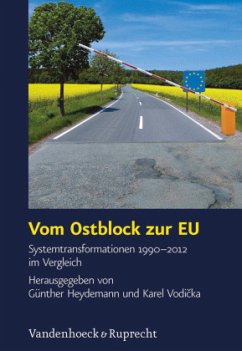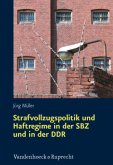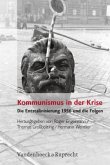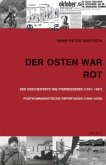In the post-Communist countries of the EU a number of structural parameters have survived the transition that distinguish them from the other, more established democracies of the European Union - as well as from the other nations of the former Eastern Bloc. The authors of this volume address these differences and analyse the political, economic and social transformation processes that took place or are still taking place in this region. It becomes clear what role politics, the economy and society in general now play in these countries, where deficits are still prominent, and what the future holds.
Hinweis: Dieser Artikel kann nur an eine deutsche Lieferadresse ausgeliefert werden.
Hinweis: Dieser Artikel kann nur an eine deutsche Lieferadresse ausgeliefert werden.








